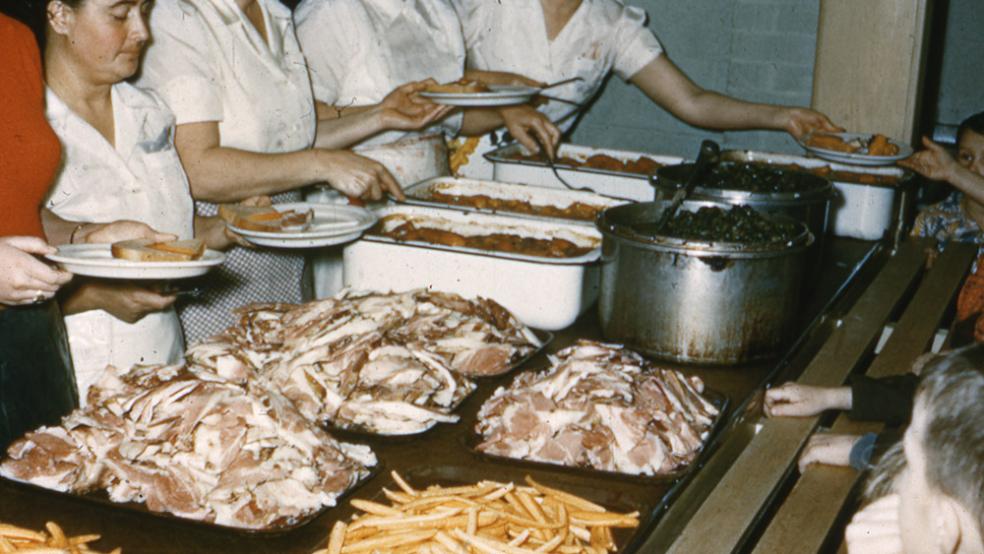In the late 1990s, as part of a rush to save money by privatizing government services, many school districts in New Jersey turned over their school lunch programs to private contractors. For the school districts, the results were what they expected – costs dropped. But a study set for release this afternoon suggests that the overall cost to New Jersey may have been higher than the amount saved by individual school districts – a warning that could apply to states, municipalities, and the federal government alike.
The study, “Race to the Bottom: How Outsourcing Public Services Rewards Corporations and Punishes the Middle Class,” was produced by In the Public Interest, a watchdog group that monitors privatization of government contracts. Its central finding is that when the government outsources its services, “local communities suffer the consequences of lower quality services and middle class jobs being replaced with poverty-level wages” while “far-away corporate executives benefit from lucrative government contracts.”
Related: Best and Worst Industries for Benefits in 2014
The New Jersey school lunch experience illustrates ITPI’s concerns. The study relies on work done by Mary McCain of the Center for Women and Work at Rutgers University. Her research found that contractors began by slashing workers’ wages by $4-6 per hour, and keeping them low. One worker told McCain that when the contractor took over the kitchen in the school where she worked, the starting wage was $8 per hour. Ten years later, she said, the wage remained the same.
Those are wages taken out of the local economy, ITPI contends, to enrich large firms in the business of contracting to provide services for the government.
Further, the study found, “Following outsourcing, most of the workers completely lost or received very few health insurance benefits from private contractors, leaving them either uninsured or enrolled in state public health insurance programs. During this time period food service contractors had among the highest levels of employees and their children enrolled in New Jersey FamilyCare, the state’s Medicaid program.”
According to ITPI, in the New Jersey case, the benefits derived by one governmental agency from privatization (public schools) manifested themselves as costs for other government programs (use of social services.) It’s a pattern, they say, that recurs across the country in various areas, from school kitchens to garbage collection to management of jails and prisons.
Related: 10 Best Companies for Pay and Benefits in 2014
In another example cited in the study, pay for nursing assistants in a Michigan veterans home were cut by more than half after a private contractor took over the facility, in addition, all benefits were taken away. According to ITPI, “The cuts resulted in higher turnover among the outsourced nursing assistants, and ultimately, lower levels of reliability and quality of care for veterans.”
When the full study is released at 1 p.m. this afternoon, in a presentation that will include Jared Bernstein, a senior fellow at the Center on Budget and Policy Priorities and former chief economist and economic advisor to Vice President Joe Biden, ITPI is expected to deliver a call for a raft of reforms. They will likely include, increased transparency about the cost of privatization, as well as wage and benefit requirements for workers replacing former government employees.
Top Reads from The Fiscal Times





